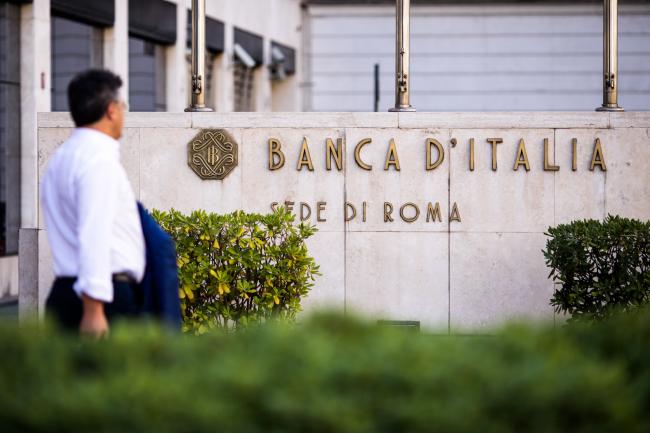(Bloomberg) -- Global trade tensions, Italy’s fiscal battles and U.S. overheating pose risks to the euro-area economy, the European Commission warned as it lowered its forecast for the coming year.
While the list of threats in the commission’s report aren’t a surprise, they come amid mounting signs of a persistent slowdown in the euro area. The European Central Bank has said growth is merely stabilizing at a more sustainable pace, but there’s a question whether there’s worse to come.
The commission sees the 19-nation economy expanding 2.1 percent this year. For 2019, it sees growth slowing to 1.9 percent, down from 2 percent forecast in July.
“Uncertainty and risks, both external and internal, are on the rise and start to take a toll on the pace of economic activity,” EU Commission Vice-President for the Euro Valdis Dombrovskis said.
The slowdown comes after 22 quarters growth for the euro-area, which has been recovering from years of financial and sovereign-debt crises. Weakness in the currency union would feed into fears of a global economic cooling and complicate options for the ECB as policy makers prepare to cap asset purchases this year.
On inflation, the commission raised its 2018 forecast to 1.8 percent and left its 2019 prediction at 1.6 percent. The figures are broadly in line with those from the ECB, which aims to get price growth to just below 2 percent over the medium term.
High Uncertainty
The EU executive arm warned that there is a “high degree of uncertainty surrounding the forecast” and there are many interconnected downside risks that which could amplify the impact of each other.
Among them is overheating in the U.S. due to fiscal stimulus, which could mean faster Federal Reserve rate increases, with spillovers to emerging markets. The EU could also suffer due to its strong trade links and banks’ exposure.
Closer to home, the commission said that doubts about the quality of public finances in highly-indebted countries like Italy could raise financial stability concerns and weigh on economic activity. The EU sees the country’s deficit widening in the next two years and warned of intensifying downside risks.
Risks related to the outcome of the Brexit negotiations also remain, though the commission said that in case of a no-deal scenario, the impact on the U.K. would be much larger than on the remaining 27 EU countries.
Italian Deviation
For Italy, the forecasts sees growth of just 1.2 percent next year, below the populist government’s 1.5 percent target. That has implications for the budget deficit, which the EU sees widening in the next two years, breaching the 3 percent limit in 2020.
The projections come amid a standoff between the government in Rome and Brussels over the former’s spending plans, which the commission has rejected.
Italy is showing little inclination to revise its plans, so one possible outcome is for the commission to bring forward an assessment of Italy’s compliance with EU rules on debt that was originally planned for the spring. If that shows failure to comply, it could trigger the so-called excessive deficit procedure, which can involve financial sanctions.
